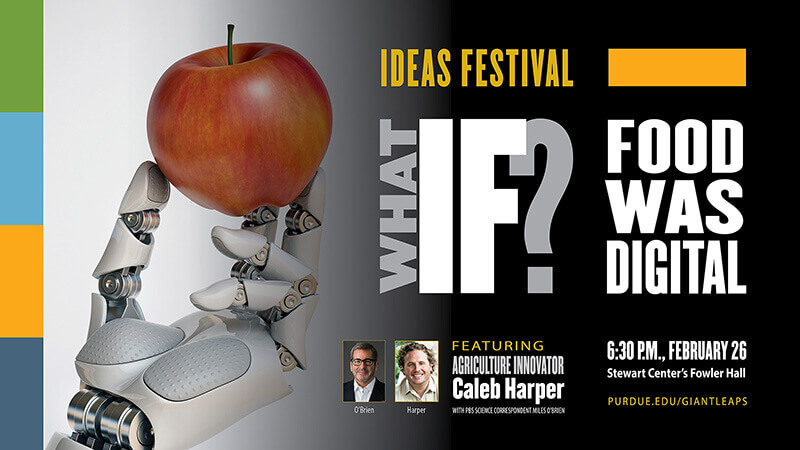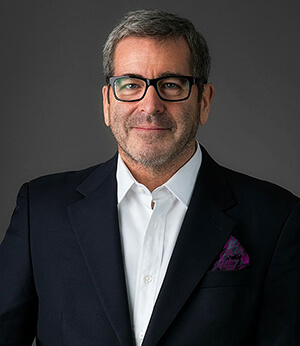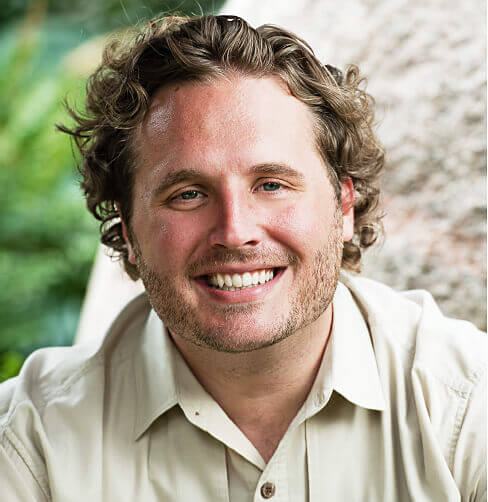February 4, 2019
Food for thought: What IF food was digital?

“What IF food was digital?” is the question that will be at the center of a discussion with Miles O’Brien and Caleb Harper during a Feb. 26 event in the Stewart Center. (Purdue University graphic)
How technology and food intersect
WEST LAFAYETTE, Ind. — Have you ever thought how artificial intelligence could improve how an apple tastes or how it is grown? And what about moving farming indoors? Would doing so solve problems related to food security and sustainability?
“What IF food was digital?” is the question that will be at the center of a discussion with Miles O’Brien, science correspondent for “PBS NewsHour,” and Caleb Harper, principal investigator and director of the Open Agriculture Initiative at the Massachusetts Institute of Technology Media Lab, during a Feb. 26 event. O’Brien and Harper will also explore many other issues in relation to how food and technology may intersect in the future, such as how computerized boxes might someday replace farms and how personal food computers might alter the way we eat.
 Miles O’Brien
Miles O’Brien
Download image
The lecture, which is free and open to the public, will take place at 6:30 p.m. in Stewart Center’s Fowler Hall. The event will be livestreamed.
The event is a part of Purdue’s Ideas Festival, the centerpiece of Purdue’s Giant Leaps Sesquicentennial Campaign, which is a series of events that connect world-renowned speakers and Purdue expertise in a conversation on the most critical problems facing the world. One of the Ideas Festival’s themes is Toward a Sustainable Economy & Planet: Innovative Today for a Sustainable Tomorrow.
In his role at MIT, Harper leads a group of engineers, scientists and educators in research that aims to shape the development of future food systems. He and his colleagues are developing an open-source agricultural hardware, software, and data common that Harper hopes will foster a more collaborative food system. Harper’s main areas of research focus on controlled environment design, actuated sensing, control automation and data-drive resource, energy and biologic optimization. Caleb Harper
Caleb Harper
Download image
“Harper’s innovative research shows just how vast the possibilities are when considering how technology can connect with various aspects of food systems in the future,” says Bernie Engel, professor and associate dean of research and graduate education for Purdue’s College of Agriculture. “Given Purdue’s special interest in agriculture and engineering and dedication to finding a way to balance conflicting environmental needs and resources, the Purdue community is very excited to hear from such a revolutionary thinker.”
This is one of the four Ideas Festival events that O’Brien will lead. O’Brien is an independent broadcast news journalist and has been serving as national science correspondent for “PBS NewsHour” since 2010. He worked as the science, environment and aerospace correspondent for CNN for 17 years.
Writer: Jaclyn Lawmaster, jlawmast@purdue.edu
Media Contact: Amy Patterson Neubert, 765-494-9723, apatterson@purdue.edu
Source: Bernie Engel, engelb@purdue.edu

